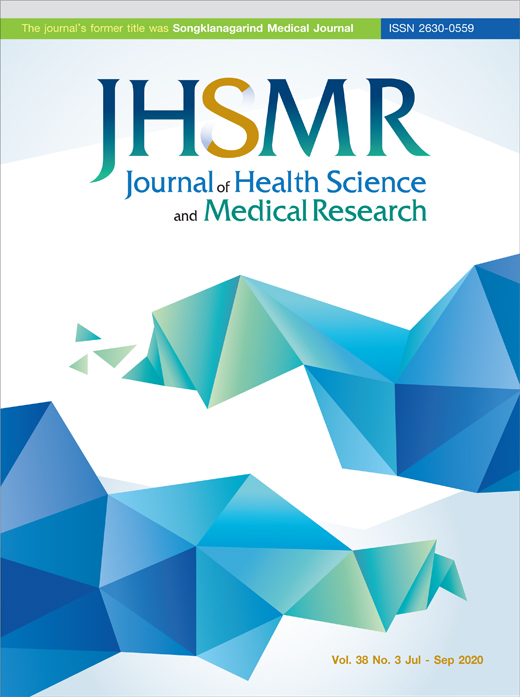Medicosocial Study on the Influence of Indigenous Knowledge on Perception of Disease Status: Using a Cardiovascular Disease as a Model
DOI:
https://doi.org/10.31584/jhsmr.2020737Keywords:
cardiovascular disease, indigenous knowledge, Nigeria, spiritual factorsAbstract
Objective: Cultural beliefs may shape understanding of disease. Cardiovascular disease (CVD) is increasing in prevalence in urban Nigerian communities; hence, the aim of this research is to explore spiritual views in this context.
Material and Methods: This study employed convenience sampling to recruit 50 participants via word of mouth, posters, handbills and community networks. The author drew from his indigenous knowledge to design tools in collaboration with stakeholders, including the community members, faith leaders and leaders in community healthcare practice; to investigate and explore the views of an urban community members in Nigeria on their indigenous beliefs about factors that contribute to CVD.
Results: The views that emerged in exploring perceived spiritual factors that contribute to CVD were organised into two preceptions, namely: spiritual inflicted diseases influenced by humans and spiritual inflicted diseases influenced by non-humans. The perceived spiritually inflicted diseases influenced by humans are through witchery and sorcery. The perceived spiritual inflicted diseases influenced by non-humans are through Satan, deities, and God. Spiritually inflicted diseases are perceived to be transmitted through pets, such as domestic cats, birds like owls, bats and objects. Perceived spiritually inflicted diseases can only be healed through spiritual means.
Conclusion: In a well-educated, ethnically diverse urban setting the view that spiritual factors have an impact on health and disease is prevalent. Since this may have an impact on healthcare choices, it should be accommodated for in public health planning, and further explored through community-based participatory research.
References
2. United Nations International Children’s Emergency Fund. Children accused of witchcraft: an anthropological study of contemporary practices in Africa (United Nations). Dakar: UN Children’s Fund (UNICEF); 2010 [cited 2019 Aug 15]. Available from: https://www.refworld.org/docid/4e97f5902.html
3. Nyabwari BJ, Kagema DN. The impacts of magic and witchcraft in the social, economic, political and spiritual life of African communities. International J Humanities Soc Sc Edu 2014;1: 9-18.
4. Tirodkar MA, Baker DW, Khurana NR. Explanatory models of coronary disease among south Asians immigrants. Patient Educ Couns 2011;10:1-7.
5. Kleinman A. Patients and healers in the context of culture: an exploration of the borderland between anthropology, medicine, and psychiatry. Berkeley: University of California Press; 1980.
6. Rodgers C. Illness explanatory models in contemporary research: a critique of the explanatory model interview catalogue [Dissertation]. Pittsburgh: Cory Rodgers; 2012 [cited 2019 Jul 10]. Available from: http://d-scholarship.pitt.edu/11952/ 1/Rodgerscj_ETD2012.pdf
7. Andary L, Stolk Y, Klimidis S. Assessing mental health across culture. Bowen Hills: Australian Academic Press; 2003.
8. White GM. The ethnographic study of cultural knowledge of mental disorder. In: Marsella AJ, White GM, editors. Cultural conception of mental health and therapy. Dordrecht: Reidel; 1982;p.68-95.
9. Weiss MG, Daryl S. Explanatory models in psychiatry. In: Bhugra D, Bhui K, Editors. Textbook of cultural psychiatry. Cambridge: Cambridge University Press; 2007;p.128–140.
10. Carteret M. Culturally-based beliefs about illness causations. Colorado: Elegant Themes; 2013 [cited 2019 Sep 11]. Available from: http://www.dimensionsofculture.com/2011/02/culturallybased-beliefs-about-illness-causation/
11. Vaughn LM, Jacquez F, Baker RC. Cultural health contributions, beliefs, and practices: effects on healthcare and medical education. Open Med Educ J 2009;2:64-74.
12. Weiner BD. Difficult medical problems on explanatory models and pragmatic alternative. Med Hypotheses 2007;68:474-9
13. Polit DF, Beck CT. Nursing research: generating and assessing evidence for nursing practice. 9th ed. Philadelphia: Wolters Kluwer/Lippincot Williams & Wilkins; 2012.
14. Braun V, Clark V. Using thematic analysis in psychology. Qual Res in Psychol 2006;3:77-101.
15. Pew Forum on Religion and Public Life. Appendix B: religious demography of sub-Saharan Africa 2010 [cited 2019 Aug 3]. Available from: https://www.pewresearch.org/wp-content/ uploads/sites/7/2010/04/sub-saharan-africa-appendix-b.pdf
16. Mbiti JS. Introduction to African religion. 2nd ed. Long Groove. Waveland Press; 1991.
17. Bhui K, Bhugra D. Explanatory models for mental distress: implications for clinical practice and research. Brit J Psych 2002;181:6-7.
18. Kleinman A, Eisenberg L, Good B. Culture, illness, and care: clinical lessons from anthropologic and cross-cultural research. Ann Inter Med 1978;88:251–8.
19. Mbiti JS. African religions and philosophy. 2nd ed. London: Heinemann Publishers; 1990.
20. Asamoah-Gyadu JK. Witchcraft accusations and Christianity in Africa. IBMR 2015;39:23-7.
21. Farmer P. AIDS and accusations: Haiti and the geography of blame. Berkley: University of California Press; 1993
























